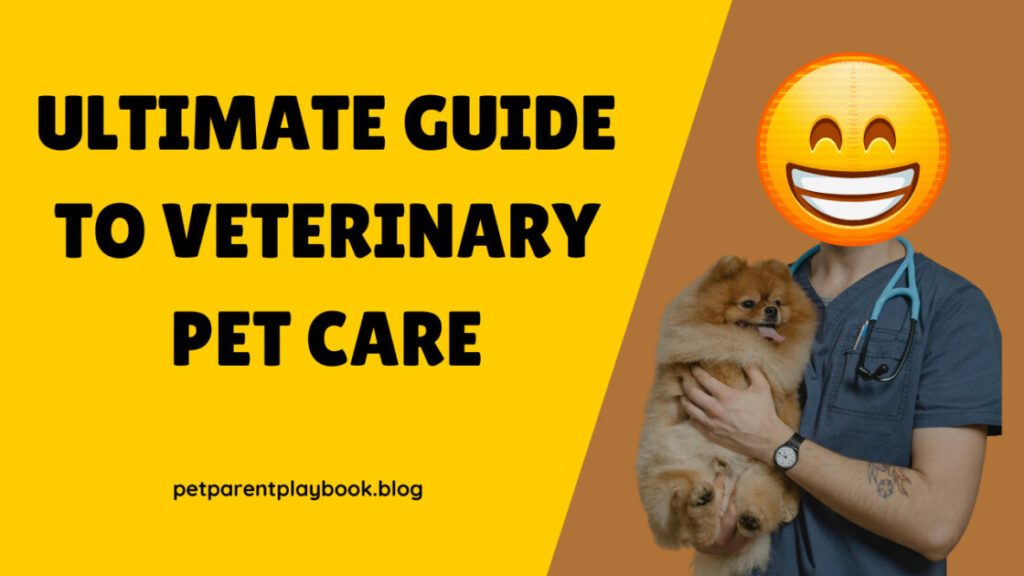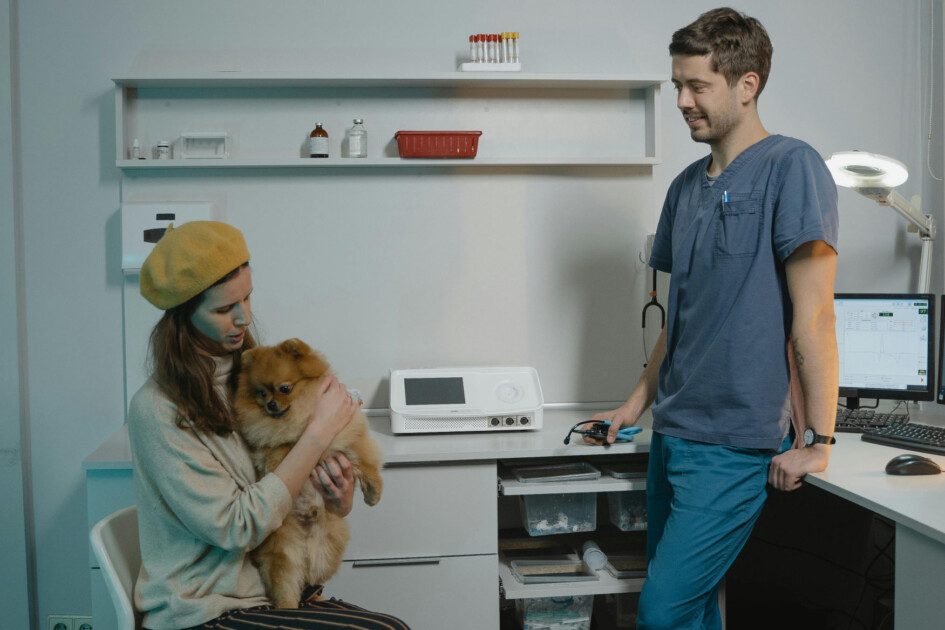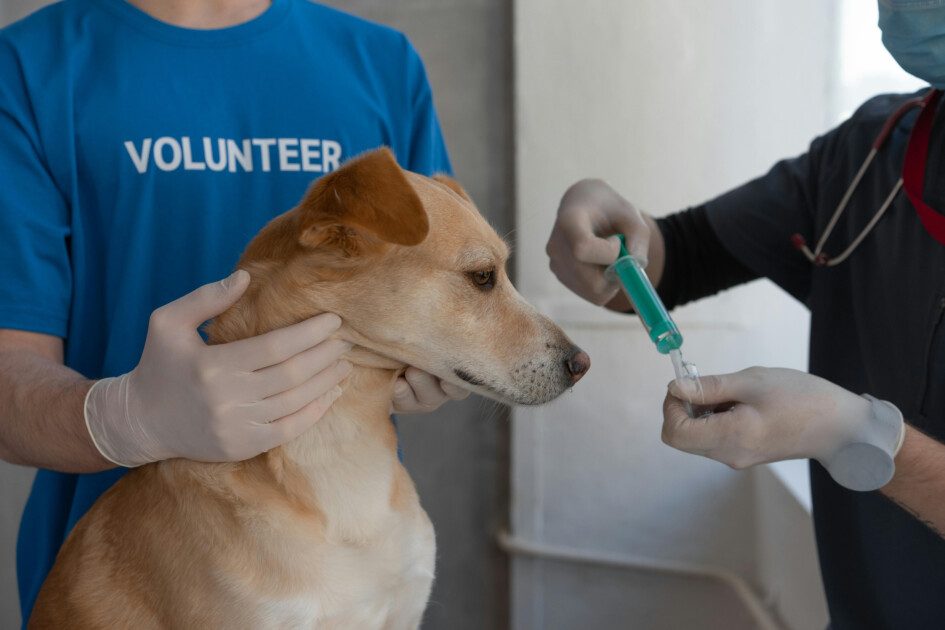As a passionate pet lover with over five years of experience, I’ve come to understand the ins and outs of veterinary pet care. Whether you’re a new pet parent or have been around furry friends for years, this guide will help you navigate the essentials of keeping your pets healthy and happy. Let’s dive into veterinary care with some practical advice, personal stories, and a sprinkle of humour.

Table of Contents
Introduction to Veterinary Pet Care
Veterinary care is the cornerstone of a healthy, happy pet. Regular check-ups, vaccinations, and preventive treatments are essential for maintaining your pet’s health. In tier 1 countries, veterinary care standards are typically high, ensuring that your pet receives the best possible treatment.
Why Regular Veterinary Visits Are Crucial
Regular veterinary visits are crucial for the early detection of health issues. Think of it like taking your car for regular maintenance to avoid a breakdown. Similarly, routine vet check-ups help prevent major health problems down the line.
Vaccinations and Preventive Care
Vaccinations are vital in protecting your pets from various diseases. I remember taking my dog, Max, for his first set of shots. He gave me that “do we really have to?” look, but I knew it was for his own good. Besides, he got a treat afterwards, so all was forgiven!
Preventive care also includes flea, tick, and heartworm prevention. These pests can cause significant health issues, so it’s essential to keep up with monthly treatments. I once forgot to give Max his flea medication on time, and he ended up scratching incessantly for days. Lesson learned!
Choosing the Right Veterinarian Pet Care
Finding a good veterinarian is like finding a good family doctor. You want someone knowledgeable, trustworthy, and compassionate. Here are some tips for choosing the right vet:

- Ask for Recommendations: Friends, family, and local pet owners can provide valuable insights.
- Check Credentials: Ensure the vet is licensed and has the necessary qualifications.
- Visit the Clinic: A visit will help you gauge the cleanliness and professionalism of the clinic.
I found Max’s vet through a recommendation from a fellow dog park regular. Dr. Smith’s clinic was spotless, and she had a way with Max that immediately put him at ease. Plus, she always had treats handy, which certainly helped!
Understanding Pet Nutrition
Nutrition plays a significant role in your pet’s overall health. A balanced diet tailored to your pet’s specific needs can prevent a range of health issues.
Choosing the Right Food
Selecting the right food can be overwhelming with so many options available. Here are some tips:
- Read Labels: Look for high-quality ingredients and avoid fillers.
- Consider Age and Breed: Different pets have different nutritional needs.
- Consult Your Vet: Your vet can provide tailored dietary recommendations.
I once decided to switch Max to a new brand of food because it was on sale. Big mistake. Max’s stomach didn’t agree with the sudden change, and we spent the next few days dealing with a very unhappy pup. Always transition to new foods gradually!
Exercise and Mental Stimulation
Exercise is vital for your pet’s physical and mental well-being. Regular walks, playtime, and interactive toys keep your pet healthy and happy.
Fun Ways to Exercise Your Pet
- Daily Walks: Essential for dogs; great bonding time.
- Play Fetch: Simple and effective.
- Interactive Toys: Keeps them entertained when you’re busy.
I remember the first time I tried to play fetch with Max. He ran after the ball, picked it up, and then promptly ran in the opposite direction. Turns out, we needed to work on the “bring it back” part of the game!
Dental Care for Pets
Dental health is often overlooked, but it’s crucial for your pet’s overall health. Regular brushing and dental check-ups can prevent serious issues.

Tips for Maintaining Dental Health
- Brush Their Teeth: Use pet-safe toothpaste.
- Dental Treats: Help reduce plaque and tartar.
- Regular Check-ups: The vet can identify issues early.
I’ll never forget the first time I tried to brush Max’s teeth. He looked at the toothbrush like it was an alien object. It took a few tries (and many treats) before he got used to the routine.
Handling Emergencies
Despite the best care, emergencies can happen. Knowing how to handle them can make a big difference.
Common Pet Emergencies
- Ingesting Toxic Substances: Keep harmful items out of reach.
- Injury: Have a first-aid kit ready.
- Severe Allergic Reactions: Know the signs and act quickly.
I once caught Max trying to munch on a chocolate bar left on the coffee table. Luckily, I managed to snatch it away in time, but it was a heart-stopping moment. Always keep dangerous items out of reach!
Conclusion: A Happy, Healthy Pet
Veterinary pet care is an ongoing commitment involving regular vet visits, proper nutrition, exercise, and much love. By staying informed and proactive, you can ensure your furry friend lives a long, happy, and healthy life.
Remember, your pet depends on you for their well-being. So keep learning, stay vigilant, and enjoy every moment with your beloved companion. And don’t forget the treats—they make every vet visit and tooth-brushing session a little bit easier!
Here are some FAQs you can include in your blog post on “Veterinary Pet Care,” addressing common concerns and questions pet owners might have:
Frequently Asked Questions About Veterinary Pet Care
1. How do I know if my pet needs to see a veterinarian?
Regular check-ups are crucial for maintaining your pet’s health, but signs like changes in appetite, behaviour, or physical appearance can indicate a need for a vet visit. It’s better to err on the side of caution and consult with your veterinarian if you’re unsure.
2. What should I do in a pet emergency?
In an emergency, contact your nearest veterinary emergency clinic immediately. Have your pet’s medical records and current medications ready. It’s also advisable to call ahead if possible to inform them of the situation.
3. Why is preventative care important for my pet?
Preventative care, including vaccinations, regular check-ups, and dental care, helps in the early detection of potential health issues, ensuring your pet lives a long and healthy life.
4. Can my pet get specialized care?
Yes, pets can receive specialized care for complex conditions from veterinary specialists who are board-certified in areas such as oncology, neurology, and dermatology. Your primary veterinarian may refer you to a specialist if your pet needs advanced treatment.
5. What should I expect during my pet’s first visit to a veterinary specialist?
The specialist will review your pet’s medical history and conduct an initial assessment. Based on this, they will develop a treatment plan and discuss the estimated costs with you before proceeding.
6. How much does veterinary care typically cost?
Costs can vary widely depending on the type of care and the severity of the condition. Initial examinations usually have a standard fee, after which the veterinarian will provide an estimate for further treatments.
7. What are some signs that my pet is experiencing a medical emergency?
Signs include severe bleeding, difficulty breathing, sudden collapse, seizures, or severe pain. If your pet exhibits any of these symptoms, seek emergency veterinary care immediately.
8. Do emergency veterinary clinics offer preventive services like vaccinations?
Most emergency veterinary clinics focus solely on urgent and emergency care. Preventative services are typically provided by your primary care veterinarian.
These FAQs address some of the most common concerns pet owners have regarding veterinary care and can help your readers feel more prepared and informed about caring for their pets.